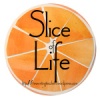What is a teaching point?
In literacy, a “teaching point” is often that behavior/learning that the teacher will demonstrate and then ask the students to use in their own work. Examples might include:
- Readers use punctuation to express meaning when reading.
- Readers think about how this book may be like another book they have read.
- Readers notice when something does not make sense. They may reread the
sentence to help them. - Writers use figurative language to make their point.
- Poets use line breaks to change the pace of a poem.
- Authors think about their audience and how the audience will respond.
Not to oversimplify, but quality teaching points include work that is transferable to real life, the reason WHY students need to know/do this, AND demonstrate HOW to do the work. The teachers who are masterful at crafting teaching points have practiced the use of those skills in their own reading and writing so that demonstrations clearly explain how the work moves readers or writers forward. Check out this post by Stacey Shubitz of Two Writing Teachers for some quality information on teaching points.
Teaching points in classrooms are often easy to spot. But what about “Teaching Points” in the rest of our lives . . .
Where have I found “Teaching Points”?
At my local tire shop . . .
“Tires need to be rotated and balanced so they wear more evenly . . . ”
At the hospital . . .
“Hand sanitizer needs to be completely dry on your hands before touching baby’s skin so the alcohol doesn’t transfer . .”
At the bank . . .
“Informing us of your location makes it easier for use to check on validity of transactions . . .”
Where, in life, do you find “Teaching Points”?
Where, in life, are you creating “Teaching Points”?
Check out the writers, readers and teachers who are “slicing” here. Thanks to Stacey, Anna, Beth, Tara, Dana and Betsy at “Two Writing Teachers” for creating a place to share our work. So grateful for this entire community of writers who also read, write and support each other!





Enjoyed your examples. I determine teaching points often by looking with children at points of difficulty, too. When the work being done is valued and agency is being exercised — this can make great sense. Authentic then becomes something determined not provided.
Thanks for commenting, Mary Ann!
Authenticity is critical. . . Sometimes teachers get stuck on “perfect teaching points” and points of difficulty are my favorite go to for small group work!
There are so many ways to think about teaching points and a “nurse practitioner” actually started this train of thought. She was the perfect teacher. I learned so much. I wanted to hire her and actually wished I had videoed her . . . I’m still amazed at what I learned!
I tend to look for teaching points at the “use but confuse” stage with students. Then they are ready to refine their understanding of the process being taught. Love your examples of teaching points in daily life.
OOOH! Love that category!
At the “close but not YET!” stage. I think sometimes we rush in to rescue when students are confused instead of working on the thinking to solve confusions (if that makes sense)! Too much help sometimes!
Thanks for sharing your thinking! 🙂
Love this broader application of teaching points to daily life. A teaching point from Ryan, my favorite tech teacher: ” I want you to give a keyword to a at least one photo every day.” He knows how to solidify my new learning.
Ramona,
That’s another great example. Thanks for sharing! 🙂
It’s all about noticing and noting huh? We are as much learners in this situation as the students we teach! I agree with Elsie, using and confusing is a great place to find things.
(Life can feel like a bit of using and confusing!)
I have to mention, this reminds me of Emmalee and Dayna (I’m tweeting it on). And here’s one for you: Teachers learn big ideas when they read Resourceful!
Julieanne
Julieanne,
I was laughing as I wrote this, wondering how I could include “creating Teaching Points while indulging in adult activities” as a form of entertainment for you, Emmalee and Dayna!
But it is the “notice, note, and NAME” as well as TRANSFER that gets us the mileage as learners! “Not just for school!” ❤
Love your examples. It is so true that there are teaching points all around us if we just tune into them.
– which fork to use first at a restaurant
-outside voice vs inside voice
– importance of “Thank you ” notes
The list goes on.
More great examples! Thanks so much! I do think that my #olw “focus” brought back last year’s “Transfer” as I wrote about teaching points. They are everywhere!
Teaching points are learning points in reverse, right – the ah ha we had which we want to pass on. I hope that makes sense…my brain is kind of fried these last weeks of school 🙂
Exactly! When we can identify them in REAL life, we can say what we have LEARNED! ❤
We need to make these points relevant to our students. If I do not know why I am learning something or how it matters I am not motivated. We need to tell them why it matters! Thank you for reminding us and giving real life examples (especially the Grandma one 🙂
Clare
Clare,
Relevance is so important for ALL our kids! And yes, it does speak so much to motivation! Someties adults kinda forget that!
I’m already amazed at the new things I’ve learned as a Grandma. Good thing I love learning! ❤
Fran I always appreciate and learn from your blog posts. Thank you. I/m reminded to keep my eyes wide open for teaching points beyond the obvious. Will you be at TCRWP in June?
Lisa,
Yes, I’m so excited to go to both Reading and Writing again in June/July! And you?
And always remembering “what’s real” when thinking about teaching and learning!!! ❤
Yes, I will be there in June for Writing. Let’s plan lunch. I wish Stacey was going to be there but she will be at the Unworkshop- which also sound fantastic.
Well, I’ll be. 🙂 I never thought of looking for teaching points in life before, Fran. But you can bet your bottom dollar I’ll be on the lookout now!
Dana,
I am sure that you will find all kinds of teaching points at your lake house and in your travels to and fro! Can’t wait to hear where you find them! (And which ones also come from your girls; I bet they have a thing or two to teach you!) 🙂